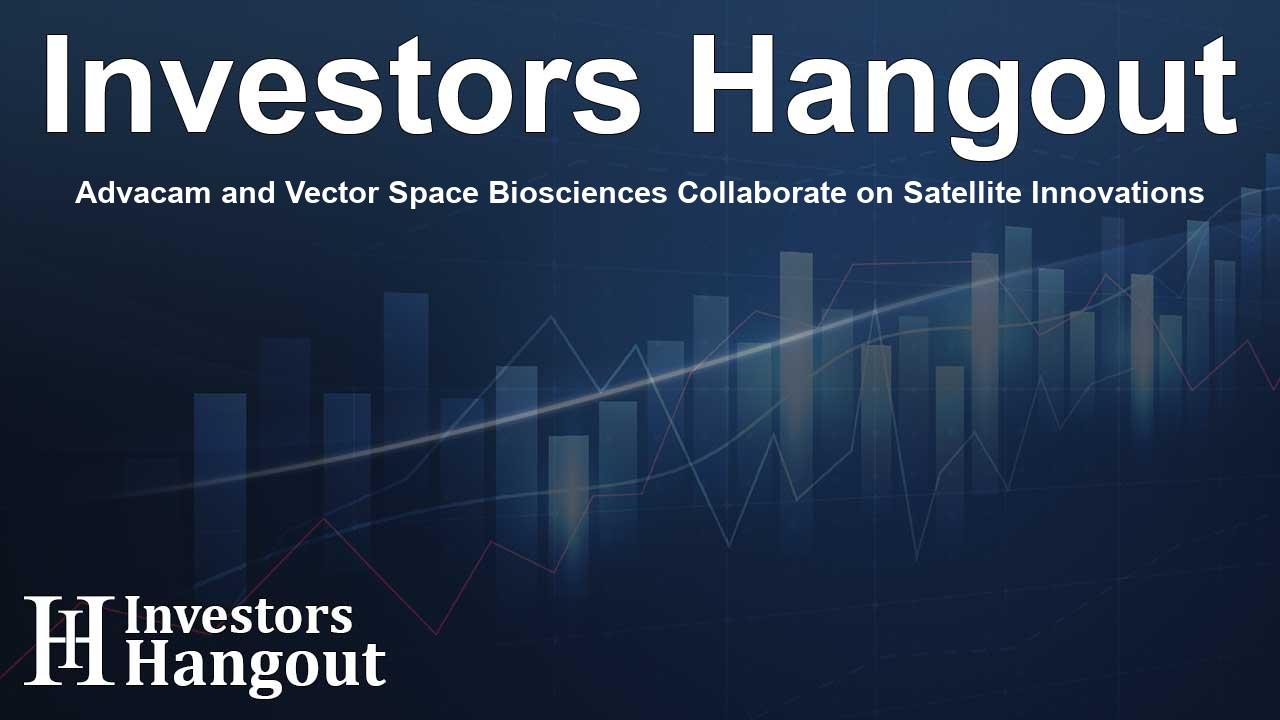Advacam and Vector Space Biosciences Collaborate on Satellite Innovations

Exciting Partnership in the Space Sector
Advacam, recognized for its innovative radiation detectors utilized aboard the International Space Station (ISS), has initiated a collaboration with Vector Space Biosciences. This partnership aims to advance CubeSat payload designs and develop AI models that will significantly impact the evolving space industry landscape.
Innovative Payload Development
The joint effort between Advacam and Vector Space Biosciences focuses on creating payloads that measure space radiation and enhance biotechnology applications. By leveraging advanced AI technologies, these companies plan to launch sophisticated CubeSats into Low Earth Orbit (LEO), gathering vital data on radiation exposure that can lead to significant advancements in both space exploration and biomedical research.
Advancements in AI and Biotech
Vector Space Biosciences (SBIO) is set to execute its first launch, incorporating approximately 50 Waterbears (Tardigrades) alongside the groundbreaking Timepix2 technology developed in partnership with CERN. This mission aims to quantify Galactic Cosmic Rays (GCRs) and other forms of radiation, essential for understanding the effects of space travel on medical devices and AI technologies. The goal is to achieve two to three launches per week, each capable of carrying multiple payloads, thereby optimizing data collection processes.
Strategic Collaborations
The partnership will create diverse opportunities for businesses in the biotechnology and pharmaceutical sectors. For instance, companies will not only have the ability to collect data but also engage in revenue-sharing models, lending support to the sustainable growth of the venture.
Joint Marketing and AI Modeling
Advacam and Vector Space Biosciences emphasize collaborative marketing efforts that will integrate direct customer engagement and referral systems. This strategic alignment is poised to help both companies enhance their visibility and operational effectiveness throughout the growing field of space biotechnology.
Benefits of Payload Data
Data collected from these payload launches holds immense value for drug development, especially in analyzing the impact of radiation and microgravity. The insights gleaned from the AI modeling of this data could lead to breakthroughs in precision medicine, targeting age-related diseases and cancer therapies.
Planetary and Space Health
As we ascend into a new era of space exploration, understanding the effects of environmental stresses like radiation on humans is vital. The collaboration between Advacam and Vector Space Biosciences is not just a business venture; it symbolizes progress toward comprehensive solutions that connect space health and biotechnology, paving the way for healthier explorations in the cosmos.
About Advacam and Vector Space Biosciences
Advacam is a leading provider of advanced radiation mapping technologies, while Vector Space Biosciences specializes in developing AI solutions derived from data gathered in space. Both organizations share a commitment to improving human health through innovative approaches in biotechnology and space science. Their ongoing projects will not only contribute to scientific knowledge but also create new pathways for commercial opportunities in the industry.
Frequently Asked Questions
What is the purpose of the collaboration between Advacam and Vector Space Biosciences?
The collaboration aims to develop AI models and CubeSat payloads for measuring space radiation and supporting biotechnology applications.
What technology will be used in the first launch?
The first launch will utilize Waterbears (Tardigrades) and the Timepix2 technology developed by Advacam and CERN.
How will the partnership benefit biotechnology companies?
The partnership provides biotechnology companies opportunities for revenue sharing and access to unique data that can enhance drug development.
What types of data will the CubeSats collect?
The CubeSats will collect data on Galactic Cosmic Rays and other forms of radiation, which are critical for evaluating health risks in space.
What is the long-term goal of this collaboration?
The long-term goal is to leverage AI and radiological data to develop new forms of precision medicine while enhancing space health and safety.
About Investors Hangout
Investors Hangout is a leading online stock forum for financial discussion and learning, offering a wide range of free tools and resources. It draws in traders of all levels, who exchange market knowledge, investigate trading tactics, and keep an eye on industry developments in real time. Featuring financial articles, stock message boards, quotes, charts, company profiles, and live news updates. Through cooperative learning and a wealth of informational resources, it helps users from novices creating their first portfolios to experts honing their techniques. Join Investors Hangout today: https://investorshangout.com/
Disclaimer: The content of this article is solely for general informational purposes only; it does not represent legal, financial, or investment advice. Investors Hangout does not offer financial advice; the author is not a licensed financial advisor. Consult a qualified advisor before making any financial or investment decisions based on this article. The author's interpretation of publicly available data shapes the opinions presented here; as a result, they should not be taken as advice to purchase, sell, or hold any securities mentioned or any other investments. The author does not guarantee the accuracy, completeness, or timeliness of any material, providing it "as is." Information and market conditions may change; past performance is not indicative of future outcomes. If any of the material offered here is inaccurate, please contact us for corrections.